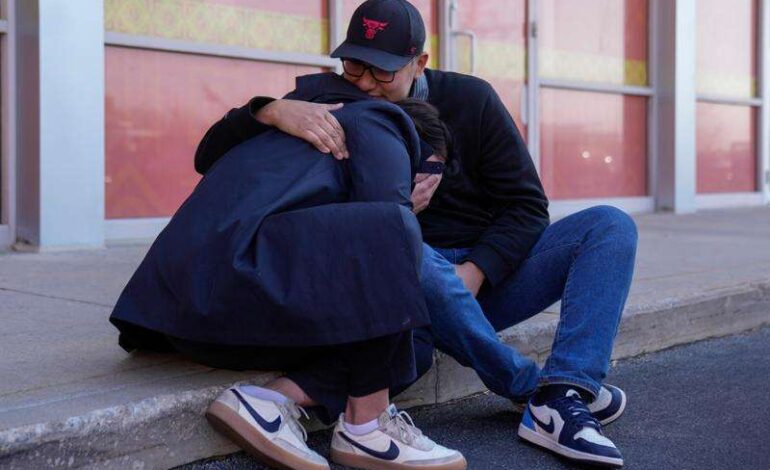Judge Orders Federal Agents to Limit Force Against Protesters

URGENT UPDATE: A federal judge in Chicago has announced a landmark ruling requiring federal agents to significantly limit the use of force against peaceful protesters and journalists. U.S. District Judge Sara Ellis declared on November 2, 2023, that current practices violate constitutional rights, following a lawsuit that highlighted excessive force during immigration enforcement operations.
Judge Ellis’s preliminary injunction comes after intense scrutiny of federal agents’ tactics, which have been accused of using tear gas and other aggressive measures against demonstrators. This ruling refines an earlier temporary order and demands that agents wear identifiable badges and refrain from deploying riot-control techniques against non-violent individuals.
In a passionate hearing, Judge Ellis criticized federal officials for failing to comply with previous directives, stating, “I don’t find defendants’ version of events credible.” She emphasized that the narrative portraying Chicago as a city rife with violence is “simply untrue,” underscoring the city’s character as a “vibrant place.”
The judge’s decision was motivated by emotional testimonies from protesters and journalists who described terrifying encounters with federal agents, including being shot with pepper balls and having guns pointed at them while documenting events. One witness, Leslie Cortez, a youth organizer from the Chicago suburb of Cicero, shared her fears, saying, “I get really nervous because it just feels like I’m not safe.”
During the eight-hour hearing on November 1, 2023, attorneys presented harrowing footage depicting the experiences of those affected by these confrontations. The testimonies revealed widespread anxiety among activists, many of whom fear returning to protests due to the potential for violence.
The preliminary injunction is likely to face an appeal from the administration of President Donald Trump. This legal battle highlights ongoing tensions between federal enforcement actions and the rights of citizens to peacefully assemble and express their views.
As the situation develops, authorities are expected to implement body camera requirements for federal agents to ensure accountability and transparency in their operations.
This ruling marks a significant moment for civil rights in Chicago, as the community grapples with the implications of federal law enforcement’s methods. The decision is poised to reshape the landscape of public protests and the interaction between authorities and citizens in the coming weeks.
Stay tuned for updates on this critical issue as more information becomes available.






